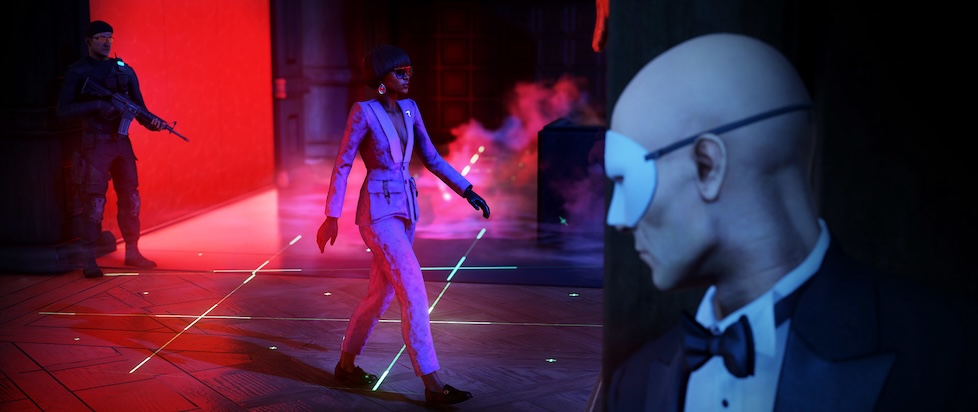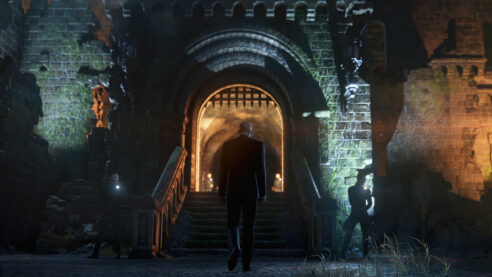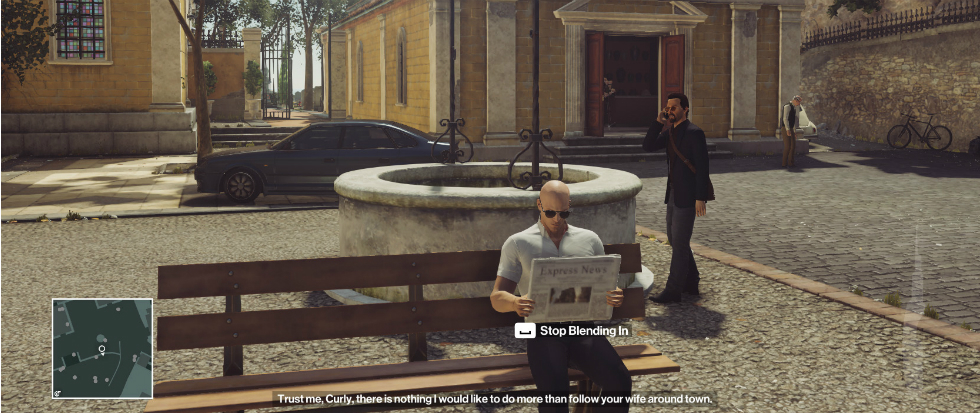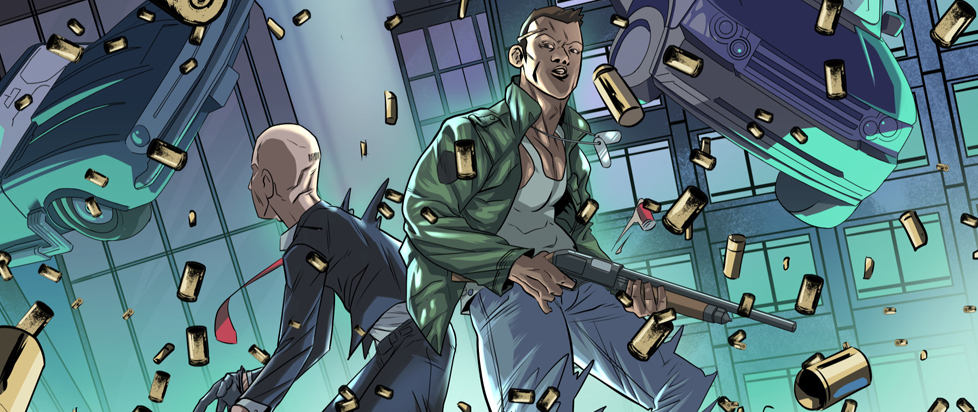
Where Do We Go From the Isle of Sgàil
It just might be the end of the world as we know it, and the people at the top feel just fine.
That’s pretty bleak, but it’s about the most professional way I can confront the deep rage that I have felt for the past year or so. The systems of “Western Order” that have defined international relations have crashed and burned. Economies seem consistently fragmented and ready for a knockout. Viral infections loom, and our systems that exist to protect the common good have been gutted, warped and outright defiled.
So why is it business as usual for the people in power?
Time and time again I am stunned at the apathy that seems to infect our leaders, the very same who promise growth and public safety and a million other buzzwords. Watching promised change never come always takes me back to George Carlin’s polemic: There’s a big club out there, and we ain’t in it.
In the Hitman Trilogy the name of this big club is Providence. It’s more accurate than many other depictions of societal rot. Unlike a Satan-worshipping Illuminati or some band of ne’er-do-wells harming society for the hell of it, Providence is made up of old money, executives, moguls, and con-men, all acting as a unit for their own self interest. Each one is edacious for more power, more control, even though they are rarely able to handle what they have. Their collusion is intended to keep them safe from the perpetual backstabbing necessary to acquire these levels of wealth, and even then it often fails to stop disputes and coups. Mammon hungers and so do his minions.
Agent 47, then, somehow becomes an agent of the common man in the plot to dismantle the oligarchy, one half-comedic accident at a time.

At the end of Hitman 2, 47’s final mission takes him to the Isle of Sgàil near Scotland to infiltrate a party for those affiliated with Providence and cut two heads off of the same snake: the Washington sisters who oversee this “Ark Society.” There are a number of different ways to achieve this goal – one could disguise themselves as waitstaff, slowly steal ceremonial robes of increasing status to get higher in the tower, or even be an upstart initiate to get closer to the duo. However, it’s not the killings of the Washington sisters that I think about even years after completing the mission.
In order to guide the player through the dozens of routes through each sandbox level, Hitman incorporates “Mission Stories” that provide in-universe hints and direction for 47 to find and isolate his targets. In this mission, all of the Mission Stories bring 47 deeper into the belly of the beast. In “Winds of Change,” Agent 47 intends to infiltrate the founding council of the Ark Society.
The Ark Society is affiliated with Providence, but it’s a tumor on a greater demon. On the island, the world’s richest wear masks and drink, but they’re also there to throw their wealth around. The party on the Isle is sort of like one of those wine-mom direct sales parties, but instead of buying weirdly colored tupperware or intimate toys, people are buying tools and property intended to survive an apocalypse. This time, a thousand arks are meant to outlast the great flood. Servants carry hors d’oeuvres and thousand-dollar wine to tables of people eagerly anticipating the world where they no longer exist. The working class is something to be expended, exploited and cast aside.
Atop an overlook, 47 hides in wait for the old coal baron with the outfit that we need. In order to get him alone, we must first eavesdrop on his conversation. A younger devotee of the society, eager to butter up his better, begins to chat about his plans for the future.
When he segues about weaponizing his millions or billions after the apocalypse, though, the Founder almost mockingly rebukes him. If all the world’s underprivileged die off, he asks, how is the caste system going to be maintained? It simply cannot be. If the world dies, then capitalism will die with it.
For this upper upper-echelon, he says, the future is communal. Everyone who survives the coming end will be reduced to equals, not out of any haughty reform but simple necessity. It’s not like they’ll have access to workers to exploit or factories to manufacture near-infinite quantities of food and banal things to throw their wealth at.
The upstart is disgusted. He assumes that the baron is toying with him. When he realizes that the man speaks the truth of their thousand arks, he storms off. Like most of the people at the gathering, he’d rather be buried in a tomb of gold than live without his wealth to lord above others.

For a game that seems to be as cynical and violent as they come, Hitman has a very-well crafted notion of “earned brutality.” Sure, 47 can just walk up and shoot the rich guy of the week, but the game discourages this attitude. More often than not Mission Stories are about creating situations where the target’s hubris leads to their own downfall. For example, one of the Ark Society’s other stories involves earning the right to be interrogated by one of the Washingtons, only to be killed by her own spatial negligence when this new upstart threatens her brittle notions of control.
“The Ark Society” hits a little too close to home five years after its release. Soon afterwards, we found out that a notable social-media exec has a massive bunker constructed beneath his already-lavish mansion. There are dozens more stories like this, half-confirmed and half glibly-denied. The smoke is on the horizon, and fires are nearing, and it is the very systems that they’ve created to exploit that are causing our multitude of current little apocalypses.
Rather than any reform, though, those in power pursue apathy. The ultra-rich prepare for systemic collapse but expect the same system to rise from its own ashes. Hitman’s satire is at its sharpest when it shows the ideological childishness that seems to accompany unimaginable privilege. We see a number of these all-powerful people reduced to impotent, stomping brats the moment any authority is contested. The majority are so blinded that they never even see Agent 47 coming.
Canonically, though, 47 is no indiscriminate killer. Tobias Reiper is an exacting professional. In this direction, the violence that 47 inflicts on his targets is allowed to become karmic and earned – it is violence as a means to an end. We take delight in the deaths of our targets not because we hunger for violence, but their deaths have the chance to fix deep societal wrongs. After all, some tumors must be excised lest they fatally parasitize the body they occupy.
“These companies don’t care about you or your kids or your grandkids. They have zero qualms about burning down the planet for a buck so why should we have any qualms about burning them down to survive?
‘Violence never solved anything’ is a statement uttered by cowards and predators.”
– Luigi Mangione
———
Joshua M. Henson has been playing video games since Doom II at the age of four, and hasn’t shut up about them since. You can find him on twitter posting very occasionally.





